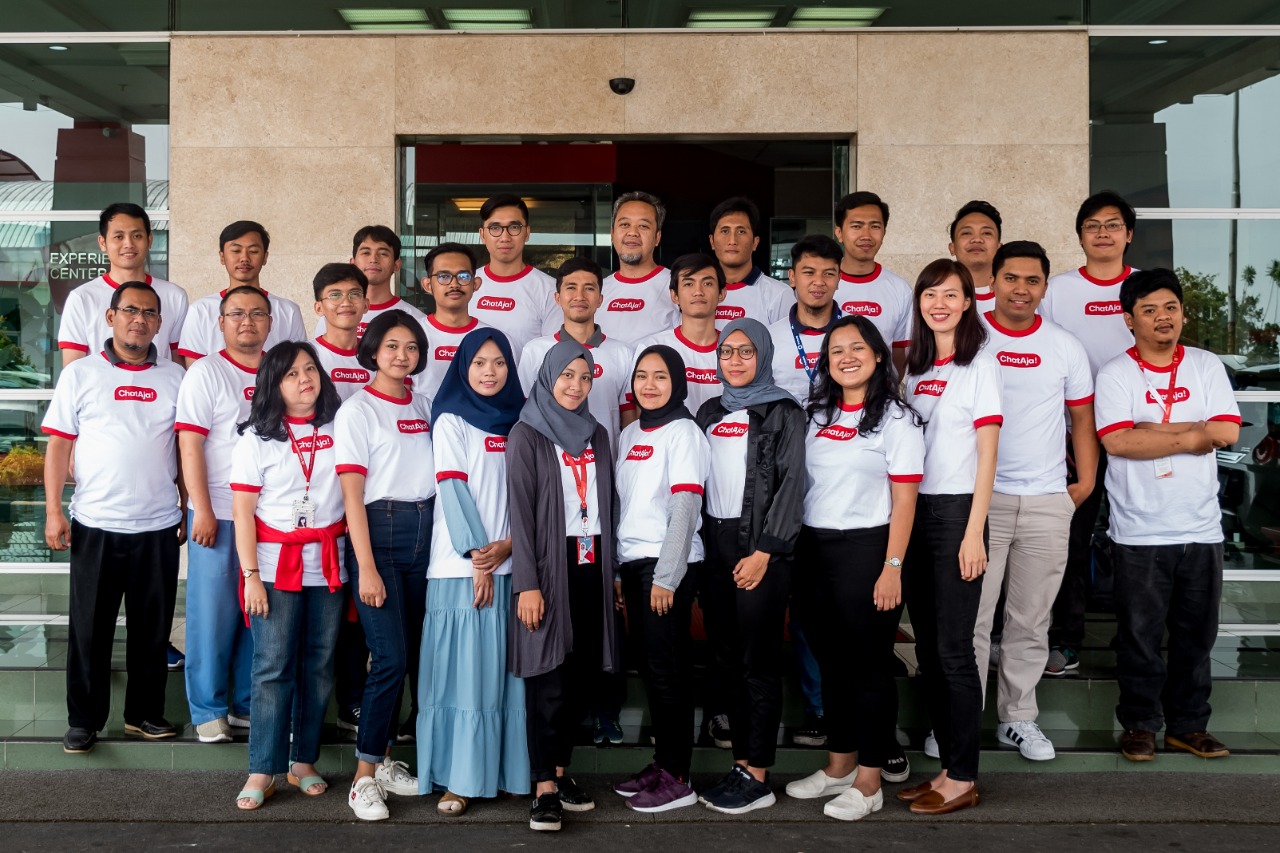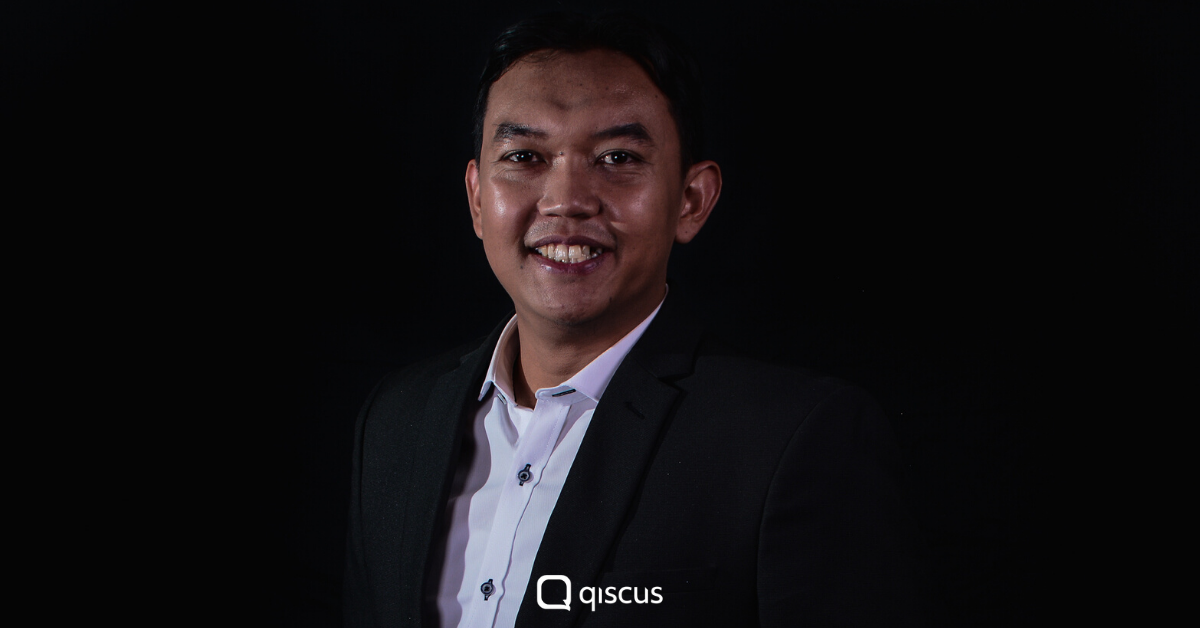Dead One Grows a Thousand, Dynamics of Local "Chat" Applications
ChatAja and Hi App try their luck; Qiscus is comfortable as an SDK platform
Application chat messaging local people are facing "one-sided" competition if they want to compete with the might of WhatsApp, Line, and Telegram. Many have tried their luck in this sector. Names like Catfiz, LiteBIG, Message Us, OTU Chat, Yogurt, BuzzBudies, Callind, SalaamAps, Me Chat, IMEStalk, and many other names have now disappeared, although some of their applications are still accessible.
A slightly disturbing question arises, what is the competition map in the application? chat messaging is this already tightly controlled by global applications?
ChatAja Co-Founder and CEO Reza Akhmad Gandara revealed, one of the factors that made players chat messaging less competitive local is too focused on creating services messaging same as competitors. Even though these (global) competitors are already strong in terms of technology and people are very comfortable using them.
He quoted Jack Ma as saying:
“You should learn from your competitors, but never copy. If you imitate, you die.”
Co-Founder and CEO Qiscus Delta Purna Widyangga believes that local applications are less competitive because this sector already has high expectations from the market. Application presence chat messaging which is already mature will make the already good market standards very high.
These expectations include features, performance, and things that may not be visible to the naked eye that have an influence on user experience. Fulfilling these expectations requires a product and technology team with sufficient capacity.
“Starting from building technology fundamentals chatits very self challenging, to building a product delightful for user. "This requires fast and continuous iteration," said Delta.
Because of the fundamentals of the application messaging is communication, the next is necessity network effects. Meanwhile, build network effects must be designed and acquired strategically and aggressively.
“So many people abandon the app messaging because I couldn't find it networkthey use the same application.”

To create network effects a team is needed growth strong by using strategy top down, community acquisition, value based acquisition, or whatever. "This process is also very iterative in nature and must be continuous."
Delta said, a company that wants to move in the field peer-to-peer messaging need to be able to solve the two problems above. It must reach a plateau of daily active users and continue to grow from there before running out of energy and funds. "And this takes a very long time, at least 3-5 years."
“Even though this challenge is difficult, Qiscus sees this as a necessity. We see that Indonesia needs it mainstream messaging apps which is an alternative to WhatsApp and others. "This is what makes Qiscus very open to collaborating and supporting initiatives towards the presence of applications like this."
Even though Qiscus only focuses on the B2B market, the challenges it faces are still relevant with slight differences. For Qiscus, to meet market expectations, the company prioritizes chat platforms the strong one, scalable, and rich in features.
“Temporarily to meet needs growth, Qiscus has a strong team, alsobusinesses with many strategic partners such as WhatsApp, LINE, channel partners, ecosystem players (chatbot, CRM), and many others.”
Hi App
One of the local applications that will be launched is Hi App. He combines his focus on B2B and B2C markets. Hi App can be downloaded on October 20.
To DailySocial, Managing Director of Hi App Michelle Kusuma explained, to provide competitive edge, as well as learn from previous players, his party conducted various surveys and interviews with all groups using the method random sampling. The goal is to learn and understand more deeply the tastes and feature needs in Indonesia.
"The Hi App product also continues to be in the development process and we will issue regular updates for the applications that will be released, so that the quality of the features offered continues to get better," he said.
This optimism is supported by the Reportal Data report as of January 2020. It is stated that social media users in Indonesia reached 160 million people, an increase of 8,1% or around 12 million people during April 2019-January 2020. They spend 3 hours 26 minutes per day on the media. social. 96% of users use the app messenger and social networking.
The report also revealed that 59% of internet users are very concerned about how companies use their data. This is one of the reasons for releasing the Hi App and asking the development team to strengthen its encryption compared to other existing applications.
In terms of features, Hi App is equipped with voice calls, video, message translator, and can separate personal chat and group chat in a different tab. For its memory capacity, this application is designed to be light so it can be used for low-end smartphones.
Michelle continued, at the inauguration the application will be focused on the retail consumer market first. According to him, each market has different feature functions so the team will design features that can meet the needs of all parties.
“The new features that we will highlight at launch are translation and organizer chat. Apart from features chat "which is light, safe and practical, we also offer other features which can be said to be very innovative and aimed at making everyday communication easier for users."
Being the new kid on the block, it will be interesting to see their strategy in acquiring users. Michelle explained that the company would introduce features offered on social media and various communities. “From there, users can try and recommend Hi App to friends and family.”
Just chat
Initially ChatAja targeted the B2B market, but since last February its market has been expanded to the retail consumer market. Since its founding in September last year, ChatAja has been used by BUMN and ASN employees. The company is supported by Telkom as internal innovation to build digital communications infrastructure. It's not surprising that the logo concept is reminiscent of LinkAja.
As stated on the page official blog, the company does not hesitate to call itself an alternative application to WhatsApp. They claim that the application is designed for the Indonesian people by offering several advantages over existing major players.
ChatAja tries to remind people about data and information sovereignty, considering that the majority of internet users in Indonesia still have a low level of awareness about data sensitivity. The company uses server local.

ChatAja's philosophy draws heavily on Telegram. The application comes with a concept cloud-native to reduce the storage load on the cellphone and reduce the need for data backup. There is also a Secret File feature, an encrypted messaging service to secure important messages.
ChatAja is said to be able to function multi-platform without having to connect to the main application on the smartphone. Synchronization simply involves entering the mobile number registered in the application. Users can use services via the web, even if their smartphone is not connected to the internet. The application also does not limit the number of members in one group.
Reza explained that his party was not only strengthening from the side messaging but also open platformit to third parties to build a variety of content in it. “Services that can be enjoyed by cookies among others omnichannel, bot builder and API botsand in-app chat. "Until now, there have been many partners working with us," he said.
For omnichannel, ChatAja can be used to distribute application messages such as notifications and OTP. Temporary bot builder and muzzle The API can be used to pamper advanced users who want to create their own version of a chatbot. Last feature text messaging ChatAja can be used to build functions in-app chat.
In recruiting users, ChatAja initially targeted B2B clients. In February 2020, a year after operating, ChatAja was opened to the general public because it was claimed to have received enthusiasm from the public.
When combined between B2B and individual users, it is claimed the figure has reached more than 500 thousand people. The user profile is centennial (generation Z) and late millennials, dominated by men. Apart from Jakarta, users come from the cities of Surabaya, Depok, Bandung, Makassar, Medan and Batam.
Reza said that his party collaborates with cross-industry, starting from health (doctors & psychologists), entertainment, marketplace, job vacancy portals, online media, through crowdfunding, to legal companies in developing various features in platform-New.
Several other features are available, such as Jelajah (news presentation from Kompas, Opini.id, Hipwee, and Uzone) and the free counseling service Simply. There is also a Public Figures Tab that allows users to talk to powered public figures chatbot AI.
There is also a ChatAja Jobs feature (hooking up Heikaku, Kalibrr, and Urbanhire) and a Sticker feature which collaborates with Mojitok (South Korea) and Zookiz (Vietnam) to enrich the collection of static and dynamic stickers.
Question DailySocial Reza did not answer regarding how the company monetizes. The company's current focus is increasing the number of users. He is optimistic that by the end of this year the platform can quadruple the number of users to 2 million people.
"Soon to be announced what features [to support this effort]. Then in the near future there will be new versions for Android, iOS and the web. "But the closest is Android, possibly the end of this month [September]," he said.
Qiscus remains focused on the B2B market
Compared to Hi App and ChatAja, Qiscus has focused on playing in the B2B market from the start, even though it has pivoted. Now the company labels itself as chat platforms for business, be it integration of all applications messaging into one dashboard and in-app chat SDK
Before arriving at its current business model, Delta said that Qiscus had pivoted from being a service provider messaging for employees. The company's spirit at that time was to always want to facilitate all conversations so that people could communicate, collaborate, engage, exchange ideas, and so on more easily and better.
“We think that forcing the market to use the market is a good way to achieve this dream, making messenger which is more flexible and reliable than WhatsApp currently. Like the Indonesian version of Slack."

His view changed completely when he saw the implementation in-app chat inside the app healthtech. Basically, conversation can play an important role in aspects of human life. That's when they realized that to have a bigger impact, [..] [they had to] enable conversation within any application.
“Conversations that will change how businesses provide services or sell their products and how consumers consume or get the help they need. This is where we move on from enterprise messenger to a conversational platform that powers conversations within any application.”
This pivot decision is considered the right one because Delta admits that with its current business model, the company has strengthened conversations for more than 30 million users with nearly 1.000 client companies. Qiscus has been used for 15 use cases in 18 countries. The company claims to have made a profit since last year and is still growing fast, even during the pandemic.
Sign up for our
newsletter
 Premium
Premium


